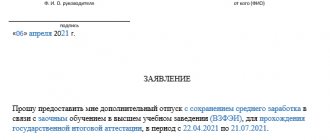The majority of Russian citizens have Art. 33 of the Labor Code is strongly associated with dismissal for absenteeism. It spelled out the grounds on which the administration could terminate the employment contract with an unscrupulous employee. The employee was fired under Article 33 of the Labor Code for absenteeism and disciplinary violations.
Subsequently, it was difficult for the person to find a job, since the personnel department did not want to accept applicants for the position with the corresponding entry in the work book. With the new additions, Article 33 of dismissal also applies to termination of employment in connection with the liquidation of an enterprise and reduction of staff.
As it used to be - features of Soviet legal regulation of labor
In the USSR, there was a Labor Code (LLC), where Article 33 was the legal basis for early termination of labor relations at the initiative of the administration. The reason could be failure to show up for work, staying there while intoxicated, or other failure to comply with labor regulations.
Feature of Art. 33 of the Code was to significantly complicate the subsequent employment of the dismissed person - despite the shortage of workers, the specialists of the personnel departments were not eager to process such applicants.
The development and adoption of the Labor Code of the Russian Federation led to the adjustment of relations between the employer and staff, taking into account the new realities of the modern country. The order of the articles has also undergone changes - the current Article 33 of the Labor Code of the Russian Federation establishes the right of the manager to appoint authorized persons to represent his interests.
Based on such changes, Art. 33 of the Labor Code is no longer used for dismissal.
Reasons for dismissal under the Labor Code
Article 33 of the Labor Code provided for dismissal without agreement with the employee if:
- the company has ceased operations or staff reductions have been made;
- a team member can no longer perform his or her official duties (due to inadequacy for the position held, insufficient professionalism, or health problems that do not allow him to continue to perform this work);
- stays on sick leave for a long time (does not apply to pregnant women and employees with diseases and injuries earned at work);
- demonstrates regular non-compliance with internal labor regulations (for example, he is often late for work);
- absent from the company for more than 3 hours;
- an employee whose vacancy was temporarily transferred to the dismissed employee returned;
- is intoxicated while on duty;
- committed theft (if there is a corresponding court decision).
As in the modern code, according to Article 33 of the Labor Code, the dismissal of an employee who has a certificate of incapacity for work and is on vacation is not allowed.
This is also important to know:
Severance pay upon dismissal, in what cases it is due, calculation formulas depending on the method of dismissal
Changes in legislation
With the transition of our country to market relations and significant changes in the political and social life of the Russian Federation, a new law was adopted - the Labor Code of the Russian Federation.
Having retained the continuity of about half of the provisions of the Labor Code, it regulates labor relations in more detail, taking into account new institutions of ownership, the diversity of legal entities-employers and includes a significantly larger number of chapters and articles.
The numbering and content of sections of the Labor Code of the Russian Federation also does not correspond to the previously effective Labor Code, therefore Article 33 of the Labor Code of the Russian Federation has nothing to do with dismissal Now it regulates the relationships between representatives of the parties to labor relations.
The official text currently looks like this:
You can read the full text of Article 33 of the Labor Code of the Russian Federation by following the link.
Article 33 of the Labor Code of the Russian Federation in its new version moved from the section devoted to the consideration of the intricacies of the employment contract to the section devoted to issues of social partnership in the sphere of labor, and became known as “Employer Representatives”. Already from its name it is absolutely clear that regarding issues of dismissal Art. 33 of the Labor Code of the Russian Federation has nothing to do with it.
Grounds for dismissal
Grounds for cancellation of a contract contained in 2 codes:
- Dissolution of the enterprise and reduction of personnel. In the current code they are included in separate paragraphs.
- Insufficient professionalism for the position held (the health reason has been eliminated). According to the new rules, confirmation from the certification commission is required.
- Regular failure to comply with internal regulations.
- Absence from work for a certain amount of time (all day or a certain period - previously it was 3 hours, now it is 4). In Art. 81 there is a clarification that was missing in Art. 33 – absenteeism will be established if a member of staff is not at the workplace specified in the employment contract.
- Being on duty while intoxicated is supplemented by the need for a medical examination.
- Theft proven by a judicial or other supervisory authority. The current Labor Code contains an addition about intentional causing of property damage (waste/destruction).
The director’s obligation is also retained - upon dismissal, there must be assistance from him in finding a new job (if the reason for canceling the contract is reduction, abolition of the organization or insufficient level of professionalism of the employee).
The reasons for Article 33 of the Labor Code, which are not included in Article 81, can be found in other parts of the Labor Code of the Russian Federation for dismissal:
- non-compliance with the official position due to unsatisfactory health status was transferred to clause 8 of Art. 77 – general conditions for canceling a contract due to the impossibility of selecting a workplace suitable for the employee’s health condition, or refusal of such an offer;
- long-term incapacity for work may cause termination of the contract under clause 8 of article 77 (indicated above) or under clause 5 of art. 83 (complete inability to perform labor functions);
- the reinstatement of the employee in whose place the dismissed person was registered became grounds independent of the will of the parties (clause 2 of Article 83 of the Labor Code).
Alcohol and drugs
Clause 6 Art. 81 of the Labor Code of the Russian Federation “Single gross violation of labor duties by an employee”:
- the appearance of an employee at work (at his workplace or on the territory of an organization - employer or facility where, on behalf of the employer, the employee must perform a labor function) in a state of alcohol, narcotic or other toxic intoxication.
Quite often applicable article for layoffs in Russia. And, it’s worth admitting, employers in our country are often right.
If you show up for work after drinking alcohol, and they promise to fire you for this, then remember - your state of alcohol or drug intoxication must be confirmed by a medical examination
.
If the employer cannot confirm your alcohol consumption, there is a good chance of defending your job.
Consequences of contract termination for the employee
Of course, such consequences as Article 33 of the Labor Code of the Labor Code of the Russian Federation do not provide for dismissal. Modern personnel may not give up on subsequent employment, but such dismissal still creates certain difficulties.
This is also important to know:
Calculation upon dismissal: payment terms, calculation, calculator
This is explained by the fact that the reason for canceling the contract is written down in the work book - if the reason for dismissal was a violation of labor discipline, then this is a signal of dishonest fulfillment of one’s obligations for potential employers.
That is why any employee tries to avoid such wording in the work book. If possible (if the manager does not mind), art. 33 (Article 81 in the Labor Code of the Russian Federation) is replaced by dismissal on the employee’s own initiative. This benefits both parties:
- the employee does not have problems with subsequent employment;
- the boss can save on payments (only unused vacation is paid).
Tips for all occasions
- Having signed an employment contract, know it by heart
; - Be clear about your job descriptions
. If they are not documented, demand them; - Try to document the entire history of relationships
with management and the employer; - Avoid disciplinary action
; - Always stand up for your rights
.
Procedure for terminating the contract under article
In accordance with the Labor Code of the Russian Federation, dismissal without the consent of an employee must be carried out in full compliance with legal norms.
The procedure consists of certain stages; ignoring them may become the basis for appealing the termination of the contract and lead to the reinstatement of the dismissed person.
Recording a violation
The manager’s opinion about an alleged violation cannot become a basis for early termination of the contract. It is necessary to attest to the fact of non-compliance with labor regulations.
The implementation of this stage depends on the type of violation.
Example
For example, in the case of being on duty under the influence of alcohol, it is necessary to prove the presence of the specified condition, and not the fact of drinking alcohol. To do this, you will have to conduct a medical examination - the results will cause the cancellation of the contract under Article 81 of the Labor Code.
In case of theft, documentary evidence is also required - a report or audit. But even so, the violation will be recognized as committed only after a trial and receipt of an appropriate court decision.
In some cases, proving the fact of a disciplinary offense is very simple. For example, in case of absenteeism, an entry in the report card is sufficient.
Sample act
Sample act of disciplinary offense in Word format
Warning
It also has its own characteristics:
- upon the dissolution of a legal entity and any change in the work schedule, as well as upon dismissal from a position due to an insufficient level of professionalism, it is necessary to notify the dismissed person 60 days before the date of cancellation of the contract (in this case, it is necessary to offer a position similar to the one with which the dismissal is being made);
- in case of non-compliance with internal regulations, failure to fulfill official obligations and absenteeism, it is necessary to request an explanatory statement from the employee, on the basis of which the degree of validity of the reason for the violation will be assessed. After receiving it, management has 1 month to punish.
Fact
For each failure to comply with the established procedure, only one punishment is possible. An employee who has skipped work and received a reprimand for this can no longer be relieved of duty under Art. 81 Labor Code of the Russian Federation.
Notification
The team member whose contract is planned to be canceled must be officially notified of the upcoming dismissal. For this purpose, a special notice is drawn up, which:
- handed to the employee against signature;
- is sent to him at his place of registration by registered mail (with a list of the contents and a notification of delivery).
This is also important to know:
Can a pregnant woman be fired from her job?
The second option is used when the employee does not show up for work or he refuses to sign the notification. In the latter case, an act of refusal is also drawn up with the presence of 2 witnesses who certify the document with their signature.
Sample notification
Notification of an employee about dismissal for a disciplinary offense in Word format
Explanatory
The requirement to provide an explanatory note is mandatory for the manager making the dismissal under the former Art. 33 Labor Code. However, whether to write it or not is at the discretion of the employee; the law does not regulate this in any way.
But refusal to provide an explanatory note will not get rid of punishment - it can be assigned as early as 2 days after the requirement to provide the reasons for the violation in writing.
Issuance of an order
Free legal consultation We will answer your question in 5 minutes!
Call: 8 800 511-39-66
One order is drawn up, which:
Free legal consultation
We will answer your question in 5 minutes!
Ask a Question
- imposes a disciplinary sanction (in this case, dismissal);
- cancels the employment contract.
It must be accompanied by documents confirming compliance with all requirements for the termination procedure:
- details of acts and reports;
- explanatory note (if provided);
- other documentation confirming the validity of early cancellation of the contract.
The order must contain the signature:
- manager;
- dismissed employee.
If the latter refuses to sign, a corresponding act is drawn up with the involvement of 2 witnesses. The lack of signature of the dismissed person does not affect the legal force of the order.
Filling out and issuing a work book
On the last day of fulfilling his official obligations, the dismissed person must be given a work book, with a record of the end of the employment relationship and reasons for this.
When filling out, you must not only indicate the article of the Labor Code under which the contract is cancelled, but also provide the accompanying text of this code.
The work book is filled out by the manager, HR employee or employee who is responsible for managing the personal affairs of the team.
Entitled payments
This dismissal involves a transfer to the account of the former employee:
- wages for the last month before the contract was cancelled;
- compensation for vacation (if it is not used);
- severance pay (in case of liquidation of the enterprise or reduction of staff).
Consequences for the person being fired
The occurrence of consequences after dismissal under the “article” depends on the entry in the work book:
- the fact of violation is not entered and it is indicated that “dismissed on his own initiative” - the risk of receiving unpleasant questions from future employers is minimal;
- the article was entered indicating the type of violation - damaged reputation and difficulties finding a new job;
- liquidation of the employer or reduction of staff is indicated as the basis for cancellation of the contract - if the manager complies with the norms of the law, the dismissed person should not worry about future employment, this is the concern of his superiors.
This is also important to know:
Dismissal of employees due to liquidation of an enterprise in 2021: procedure, payments, challenges
Thus, all options for terminating employment relations at the initiative of the administration, except for liquidation and layoffs, create the risk of complicating the process of obtaining a new job.
Theft and embezzlement
Clause 6 Art. 81 of the Labor Code of the Russian Federation “Single gross violation of labor duties by an employee”:
- committing at the place of work theft (including small) of someone else's property, embezzlement, intentional destruction or damage, established by a court verdict that has entered into legal force or a decision of a judge, body, official authorized to consider cases of administrative offenses.
We are talking about a criminal violation, which means this rule is applicable only after a court verdict has been passed.
. Accordingly, an investigation should be carried out by the competent authorities.
However, this is in the criminal
, not labor law.
In practice, in order to resolve a conflict without material and reputational losses, the injured employer often offers the stealing employee to disperse peacefully after compensation for losses.
However, in our country situations often arise when unscrupulous managers attribute material losses to the theft of ordinary employees. In such a situation, you cannot do without a competent lawyer who knows both criminal and labor law. Without a thorough knowledge of the structure of the internal document flow of an enterprise, it will be very difficult to prove the innocence of the accused.
Results
In the Soviet Union, dismissal under Art. 33 of the Labor Code was the use of social pressure measures against an employee who violated labor regulations and made the search for a new job almost impossible. In modern legislation, termination of employment relations at the initiative of the employer does not put an end to future employment, but can also create certain inconveniences.
The grounds for unilateral cancellation of a contract, both under the Labor Code and the Labor Code, are non-compliance with labor regulations (with the exception of the liquidation of an enterprise and staff reduction, as well as the return to work of an employee who previously held this position). Any employee may be dismissed if:
- inconsistency with the position held;
- staying in the workplace while intoxicated;
- failure to appear for duty or absence for a certain amount of time (according to the Labor Code - 3 hours, according to the Labor Code - 4 hours in a row);
- theft (proven during trial).
The Labor Code of the Russian Federation expands the list of grounds for unilateral cancellation of a contract and includes, in addition to those listed:
- change of owner of the enterprise (upon dismissal of the manager, his deputy and chief accountant);
- theft or disclosure of trade secrets;
- concealment of information about property during employment (if this is important for the position);
- providing false documents, etc.
Thus, the Labor Code expands the list of reasons for early termination of employment relations, while maintaining all the grounds specified in the Labor Code.
The dismissal procedure consists of the following stages:
- recording a violation;
- warning the employee about future job loss;
- requirement of an explanatory note from the violator;
- receiving an explanatory note (at the employee’s discretion, since he is not obliged to write it, but the manager must request it);
- issuance of an order;
- filling out and issuing a work book;
- transfer of payments and compensations.
Thus, any violation of labor regulations on the part of an employee may become grounds for early termination of employment relations with him.
But at the same time, the manager is obliged to comply with all the requirements for the dismissal procedure, otherwise it may be challenged. The result of this may be the reinstatement of the employee in his position (at his request) and the imposition of penalties on the employer.
Free consultation
8 800 511-39-66Ask a question








